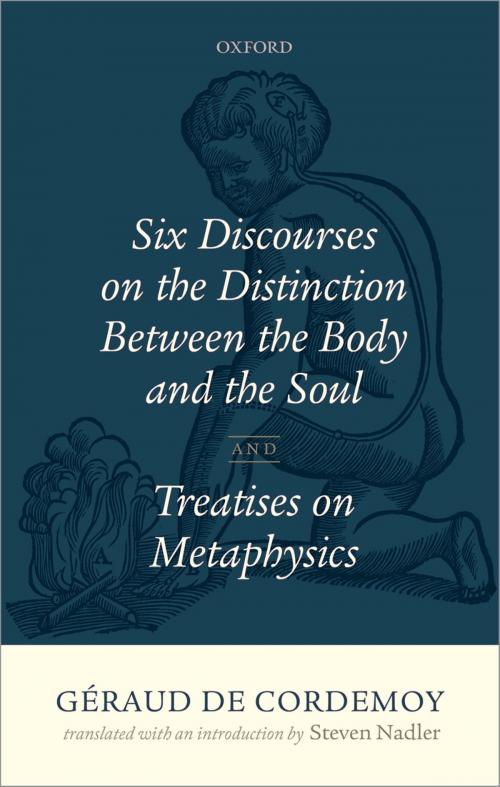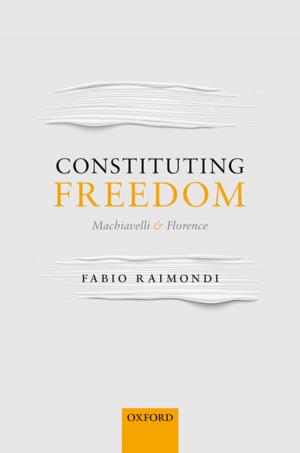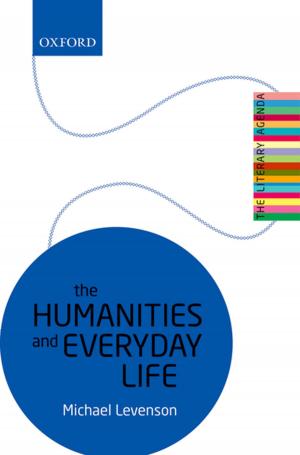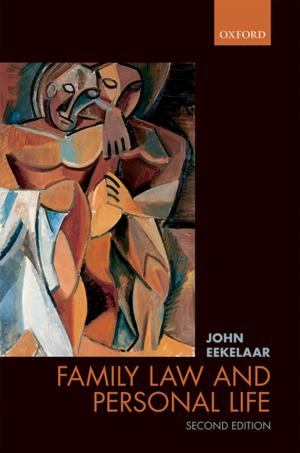Géraud de Cordemoy: Six Discourses on the Distinction between the Body and the Soul
Nonfiction, Religion & Spirituality, Philosophy, Modern, Social & Cultural Studies, Social Science| Author: | Steven Nadler | ISBN: | 9780191055850 |
| Publisher: | OUP Oxford | Publication: | April 30, 2015 |
| Imprint: | OUP Oxford | Language: | English |
| Author: | Steven Nadler |
| ISBN: | 9780191055850 |
| Publisher: | OUP Oxford |
| Publication: | April 30, 2015 |
| Imprint: | OUP Oxford |
| Language: | English |
Steven Nadler presents the first English translation of a seminal work in the history of early modern philosophy. Géraud de Cordemoy's Six Discourses on the Distinction Between the Soul and the Body (originally published in French in 1666) offers an account of the mind and the body in a human being. Cordemoy is an unorthodox Cartesian who opts for an atomist conception of body and matter. In this groundbreaking treatise, he also presents one of the earliest arguments for an occasionalist account of causation, with God serving as the true cause of bodily motions in the world and of ideas in the mind. Nadler also includes the first English translation of Cordemoy's short Treatises on Metaphysics, which were probably written soon after the Discourses, and extend his discussion of mind-body union with consideration of human freedom and happiness. The introduction provides a biographical and historical context for Cordemoy's work and a study of his main philosophical doctrines, including his influence on later thinkers (such as Leibniz and Malebranche).
Steven Nadler presents the first English translation of a seminal work in the history of early modern philosophy. Géraud de Cordemoy's Six Discourses on the Distinction Between the Soul and the Body (originally published in French in 1666) offers an account of the mind and the body in a human being. Cordemoy is an unorthodox Cartesian who opts for an atomist conception of body and matter. In this groundbreaking treatise, he also presents one of the earliest arguments for an occasionalist account of causation, with God serving as the true cause of bodily motions in the world and of ideas in the mind. Nadler also includes the first English translation of Cordemoy's short Treatises on Metaphysics, which were probably written soon after the Discourses, and extend his discussion of mind-body union with consideration of human freedom and happiness. The introduction provides a biographical and historical context for Cordemoy's work and a study of his main philosophical doctrines, including his influence on later thinkers (such as Leibniz and Malebranche).















